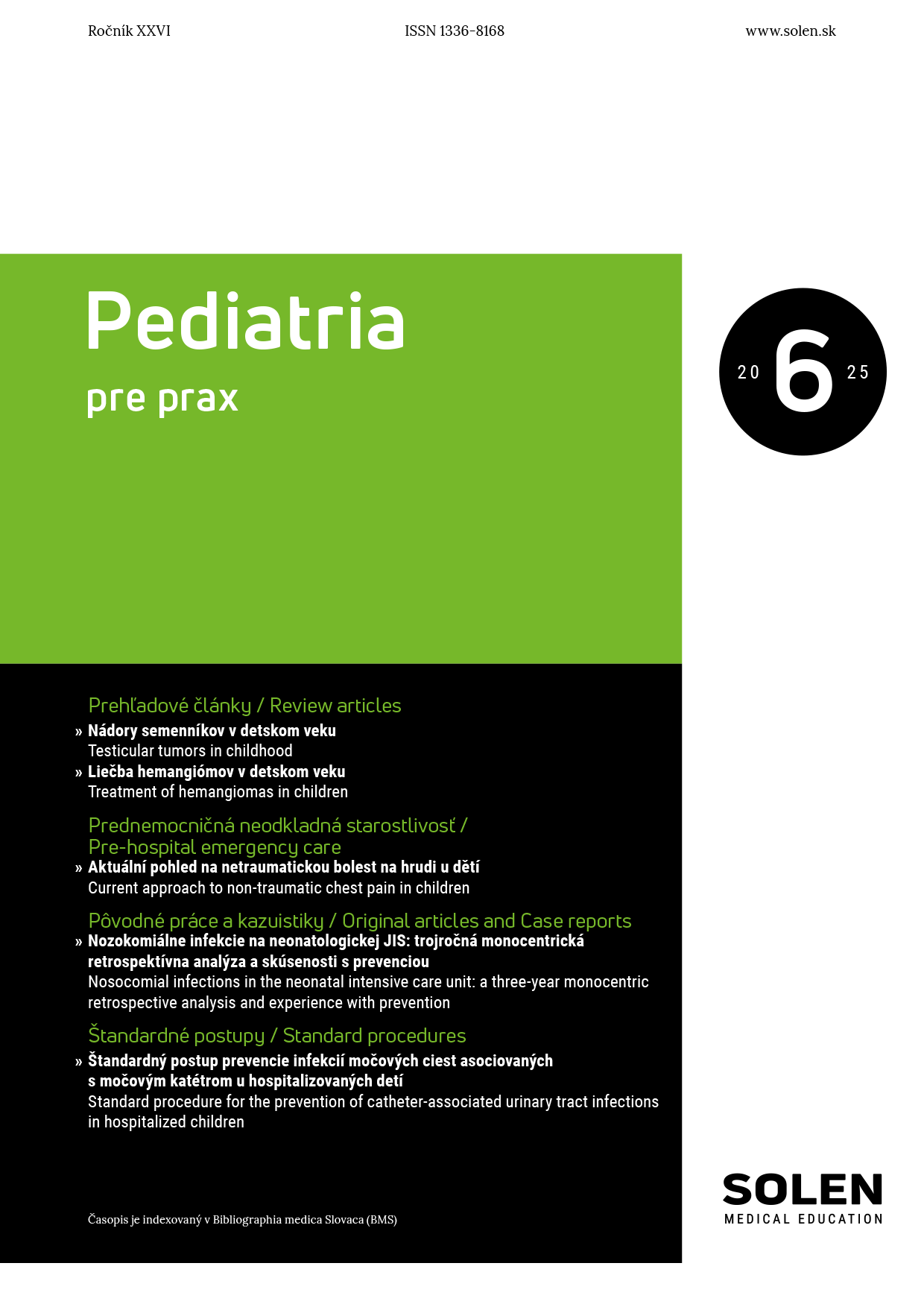Psychiatria pre prax 3/2022
Amyotrofická laterálna skleróza, viac než len neurologická diagnóza
Amyotrofická laterálna skleróza (ALS) je ochorenie charakterizované progresívnou stratou motorických neurónov v mozgu a mieche (1). Ide o zriedkavé smrteľné neurodegeneratívne ochorenie, ktoré vedie k svalovej slabosti, atrofii a nakoniec k zlyhaniu dýchania v priebehu 2 – 4 rokov po nástupe symptómov (2). Jej presná príčina stále nie je celkom objasnená, hoci výskum poukazuje na genetický a environmentálny korelát (1). Za posledné desaťročie sa počet génov, ktoré sú dávané do pravdepodobného príčinného súvisu s ALS, dramaticky zvýšil (3). Mení sa i historický pohľad na ALS ako len na čisto motorickú poruchu (4). Viac sa začína diskutovať o duševných poruchách a o jednotlivých syndrómoch a symptómoch duševných porúch, ako možných prodrómoch neurologickej symptomatiky ALS (5) a o ich základných spoločných patogenetických mechanizmoch ovplyvňujúcich “nemotorické” i motorické štruktúry v rámci centrálneho nervového systému (CNS). Zistilo sa, že neurodegeneratívne ochorenie ALS predstavuje syndróm zahŕňajúci klinické, histopatologické a genetické spoločné premenné s frontotemporálnou demenciou (FTD) a schizofréniou (4, 6, 7) a v počiatočných štádiách mnohých neurodegeneratívnych ochorení sa u pacientov často vyskytujú práve symptómy depresie (8). Cieľom tohto článku je stručne priblížiť diagnózu ALS, najčastejšie psychické zmeny a poruchy, ktoré sú dávané do úzkeho súvisu s ALS a ich spoločné genetické pozadie. Nakoľko diagnóza ALS predstavuje interdisciplinárny problém, nevynímajúc psychiatrov, je potrebné sa zamyslieť nad ALS a FTD ako určitým kontinuom motorických chorôb (z anglickej literatúry: the frontotemporal dementia – motor neuron disease continuum) a nad depresiou ako možnou prodromálnou fázou (“skorým markerom”) neurodegeneratívnych chorôb.
Kľúčové slová: amyotrofická laterálna skleróza, depresia, duševné poruchy, frontotemporálna demencia, neurodegeneratívne ochorenia
Amyotrophic lateral sclerosis, more than just a neurological diagnosis
Amyotrophic lateral sclerosis (ALS) is a disease characterized by the progressive loss of motor neurons in the brain and spinal cord (1). It is a rare fatal neurodegenerative disease that leads to muscle weakness, atrophy, and eventually respiratory failure within 2-4 years after the onset of symptoms (2). Its exact cause is still not fully understood, although research points to a genetic and environmental correlate (1). The number of these genes that have been attributed to a probable causal relationship with ALS has increased dramatically over the last decade (3). The historical view of ALS as a purely motor disorder also changes (4). There is more discussion about mental disorders and individual syndromes and symptoms of mental disorders, as possible prodromes of ALS neurological symptoms (5) and their basic common pathogenetic mechanisms affecting “non-motor” and motor structures within the central nervous system (CNS). There is a new finding, that neurodegenerative disease ALS is a syndrome involving clinical, histopathological, and genetic variables common to frontotemporal dementia (FTD) and schizophrenia (4, 6, 7) and in the early stages of many neurodegenerative diseases patients often experience symptoms of depression (8). The aim of this article is to briefly present the diagnosis of ALS, the most common mental changes and disorders that are closely related to ALS and their common genetic background. As the diagnosis of ALS is an interdisciplinary problem, including psychiatric, it is necessary to think of ALS and FTD as a certain continuum of motor diseases (the frontotemporal dementia-motor neuron disease continuum) and depression as a possible prodromal phase (an early marker) of neurodegenerative diseases.
Keywords: amyotrophic lateral sclerosis, depression, mental disorders, frontotemporal dementia, neurodegenerative diseases

















